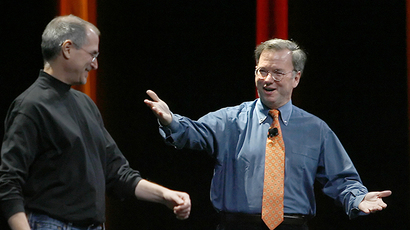Piracy lawsuits face new hurdle after judge rules against mass claims

A federal judge has ruled that copyright holders seeking to file suit against online pirates may not join multiple defendants into one suit, likely ending a method that entertainment studios have long relied upon to intimidate users into settlements.
Copyright enforcers, led by the Motion Picture Association of America (MPAA) and Recording Industry Association of America (RIAA), have filed suit against hundreds of thousands of accused infringers since online piracy was popularized more than a decade ago.
When the MPAA, RIAA, or another party goes to court they often take dozens, hundreds, or thousands of defendants with them at once. However when the copyright holders go to court they are often armed only with an individual’s IP address or other details. When attempting to convince a court to provide further details about those people, it is cheaper for the copyright holder to pay one large filing fee rather paying for details on each individual person.
That may now be significantly more difficult after a December ruling from Judge Stephanie Rose, who decided in Iowa court that copyright holders should no longer be permitted to file a single piracy case against so many defendants at once.
Copyright holders have previously championed their right to file suit against hundreds of pirates because when those people download a torrent file they link to other individuals, thus creating a conspiracy. Yet Judge Rose, in a series of rulings regarding the movies “Killer Joe,” “Sibling,” and “The Company You Keep,” found that justification too thin.
“In the ‘Killer Joe’ cases there January defendants would have to be connected to the internet and still actively distributing data through the BitTorrent client approximately three months later to be involved in the same transaction as the April defendants, which is implausible at best,” she wrote, as quoted by TorrentFreak.
“Although each plaintiff has alleged that the defendants in each case were in the same swarm based on the same hash value, participation in a specific swarm is too imprecise a factor absent additional information relating to the alleged copyright infringement to support joinder,” Judge Rose went on.
She ruled that each case should be limited to one defendant because the plaintiffs have failed prove any guilt under the terms set out by the judge’s logic.
“Any ‘pieces’ of the work copied or uploaded by any individual [John] Doe may have gone to any other Doe, but may instead have gone to any of the potentially thousands of others who participated in a given swarm and are not in this case,” she wrote.
Earlier this month a US federal judge in Washington delivered another blow to copyright holders, ruling that just because an individual’s IP address is known to have downloaded media illegally that does not mean the computer’s owner is responsible.
The Hollywood executives behind the movie ‘Elf Man’ filed a lawsuit against hundreds of people, alleging that they were guilty of copyright infringement because their internet protocol (IP) address was found to have illegally downloaded the film. An IP address can be likened to a computer's online fingerprint; each is unique to the machine it originates from.
Washington District Judge Robert Lasnick dismissed the suit, explaining that the movie studio “has actually alleged no more than the named defendants purchased internet access and failed to ensure that other did not use that access to download copyright material.”














